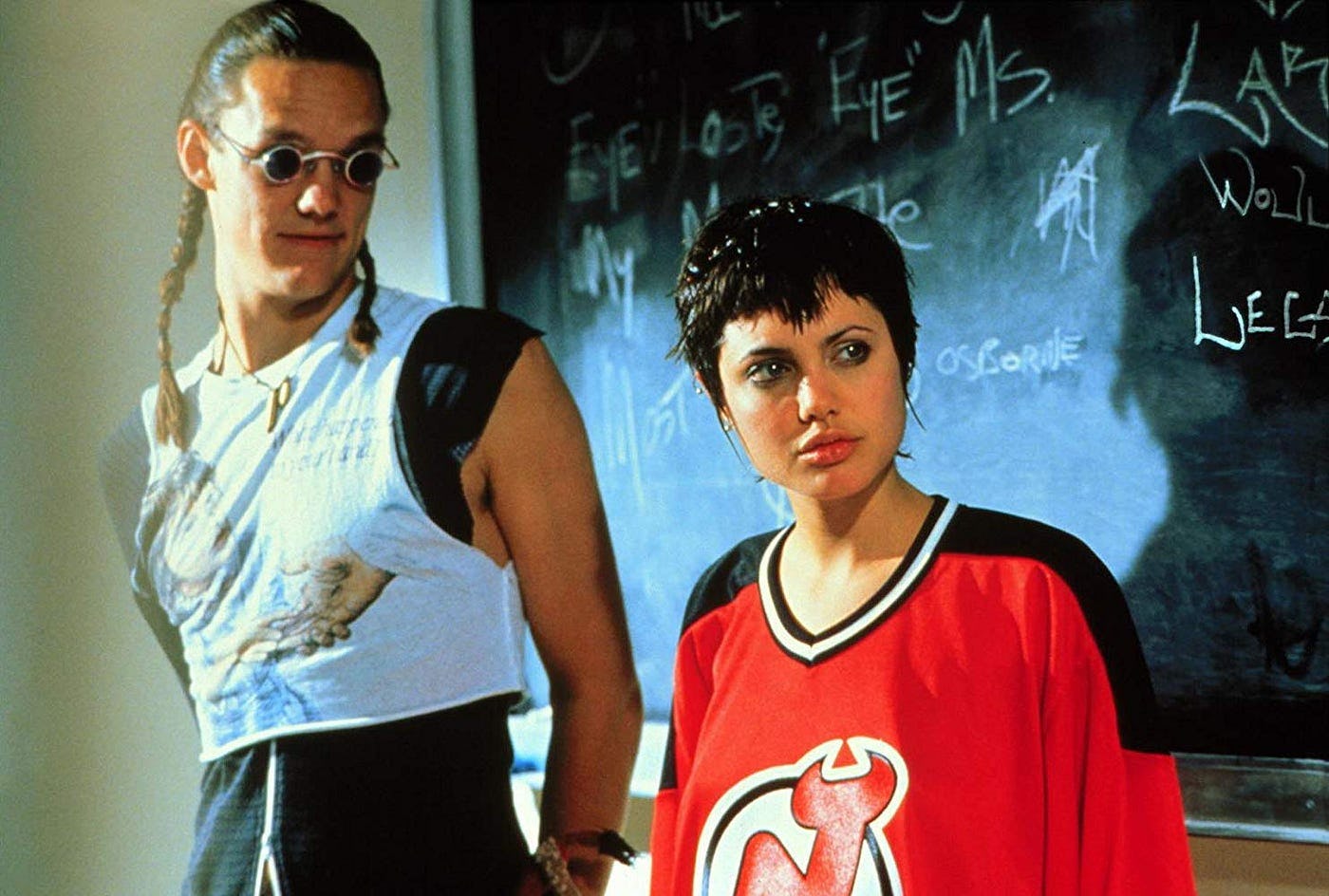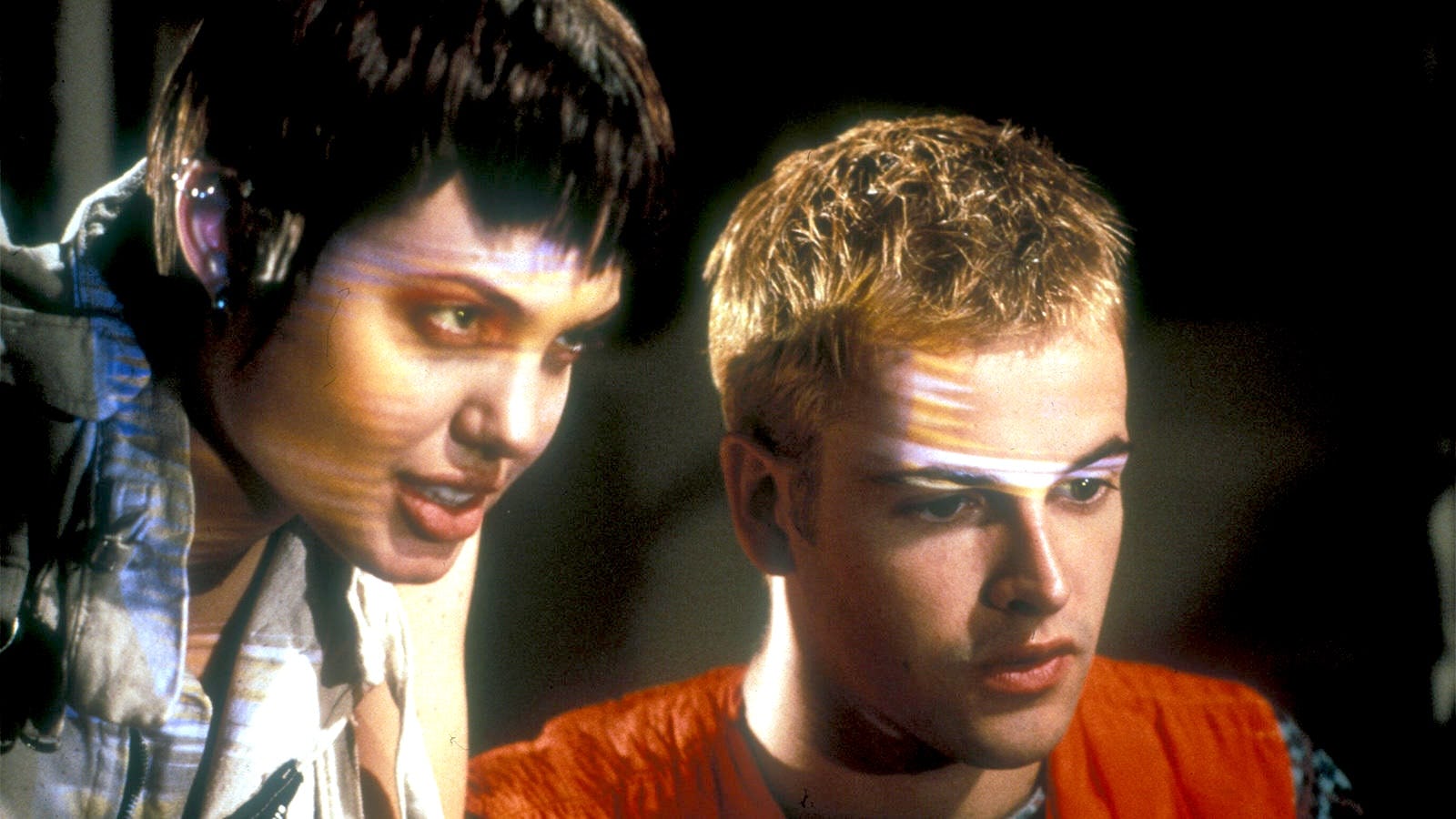
Watchmen. Dune. Lord of the Rings. There have always been stories that are so fundamentally intertwined with the original medium they were told in that even trying to adapt them into film has been recognized as a Sisyphean task, earning them the moniker of “unfilmable.” Countless works have at one point in time been given the cursed title, with many of them inevitably arriving on the silver screen with the advent of new technology and passionate filmmakers with a hunger to plant their flag on uncharted territory.
And yet, after four decades and countless attempts, one beloved cult novel still remains frozen at the peak of a mountain of unadaptable stories, still untouched by those brave enough to try: Neuromancer. William Gibson’s 1984 sci-fi noir was the spark that erupted the cyberpunk explosion, and countless films owe a debt to the world he created, notably including The Matrix and Ghost in the Shell. However, there’s one film in particular that is such a potent dose of the same techno-existentialist anarchy that runs through Neuromancer’s veins that it might as well be considered a loose adaptation.
Unlike Gibson’s novel, which is widely considered a masterpiece, 1995’s Hackers is anything but — the movie was mostly lost on critics at the time (Roger Ebert gave it a courageous 3 stars), who derided its inauthenticity, implausibility, and ineffectiveness at exploring the real hacker subculture, and it was a notorious failure at the box office. But with the benefit of hindsight (driven by the sizeable cult community that has sprouted up around it since release), it’s easy to see that the film had a bit more depth than it was initially given credit for. Maybe it wasn’t entirely accurate to the genuine reality of what hacking looks like, but it is in line with the imaginative speculation about the internet that Gibson was doing 11 years earlier.
While Gibson was envisioning the video game arcade console when he first coined the term cyberspace in a 1982 short story, the screenwriter of Hackers, Rafael Moreu, was deeply entrenched in the reality of the contemporary internet. After hacking began to become a serious federal crime, Moreu decided to write a script about it — even meeting with legendary criminal hacker Phiber Optik, aka Mark Abene, a member of the outlaw hacker collectives Legion of Doom and Masters of Deception. It was precisely this vision of hacking as a multi-ethnic, international rebellion against authority that inspired his story about a young hacker, Dade “Zero Cool” Murphey (Jonny Lee Miller) joining a group of high school vigilante hackers and their battle against corporate computer security officer Eugene Belford (Fisher Stevens).

On the surface, Hackers and Neuromancer share some plot beats: our lead character is severed from his connection to the internet (in the film a legal ban on technology as punishment for underage hacking, in the book a physical crippling at the hands of organized criminals preventing him from “jacking in” to cyberspace). He joins a hacker collective that reconnects him to the world he loves, and there’s even a mysterious femme-fatale in each (Neuromancer features a cybernetic mercenary named Molly while Hackers’ gives us a manic pixie dream hacker played by a young Angelina Jolie). But on a deeper level, both stories merge the future with the cynical stylings of hardboiled noir. Even though Hackers is colored by mid-’90s teen fashion and angst, it’s still a heist thriller where our heroes are a diverse group of criminals on the opposite side of the law — an idea that echoes Gibson’s own desire for cyberpunk to reject “the world as a white monoculture” and for it to “make room for antiheroes.”
One of the most iconic (and contentious) aspects of Hackers is the visual aesthetic, a presentation of the internet that feels more akin to a hallucinogenic trip than the tactile interactions we have at our laptops or on our phones. That was entirely purposeful, a result of director Iain Softley choosing to instead show the internet as a psychedelic abstraction, a three-dimensional space the camera freely traverses through during the hacking. The overstimulating editing might not be an accurate representation of what real hacking looks like, but it’s certainly an imaginative interpretation of cyberspace, one that fits right alongside Gibson’s prose describing the web as a virtual reality that characters literally insert their consciousness into. Even though he swears the book wasn’t meant to be prescient, Neuromancer’s vision of our relationship with the internet gets nearer every day, and Hackers’ iconic visual aesthetic captures the intoxicating allure screens have on their users.

Despite the high camp that comes with it, Hackers still earns its place alongside the greats that have been inspired by Gibson’s classic, mostly for the sole fact that it fundamentally understands the counter-cultural, revolutionary spirit of cyberpunk. At the end of the day, both it and Neuromancer rightfully understand that our relationship with technology can never be truly uninhibited as long as it remains a tool to be weaponized by overreaching federal authorities and corrupt megacorporations. And even though both works have been accused of misrepresenting hacker subculture, the one thing it gets right is the ability of the internet to unite us against those nebulous foes, transcending race and gender and nationality. As per the Hacker Manifesto: “...we exist without skin color, without nationality, without religious bias... and you call us criminals... Yes, I am a criminal. My crime is that of curiosity."





.jpg?w=600)

